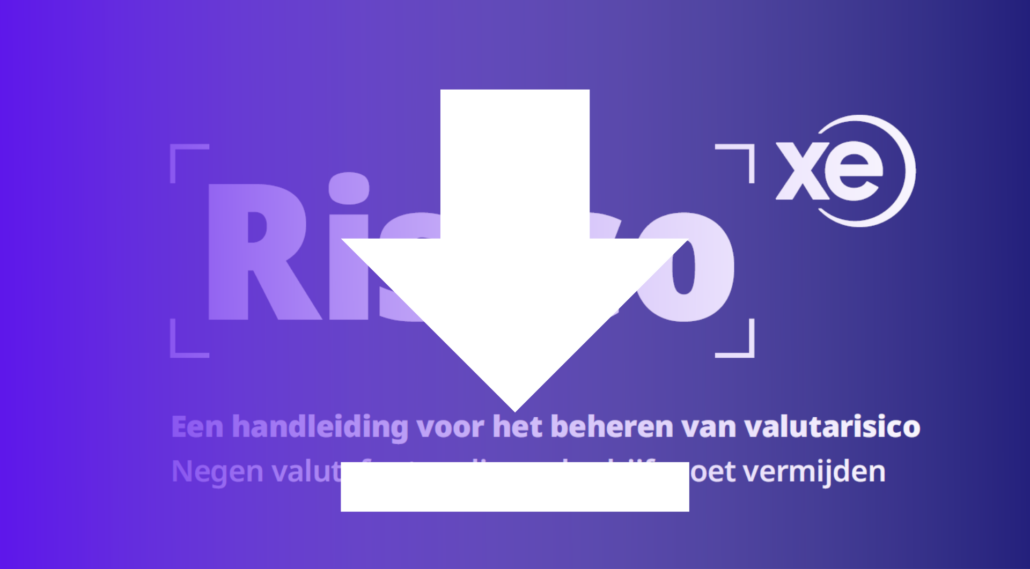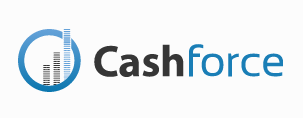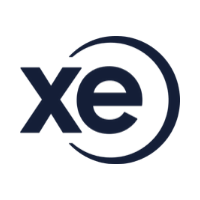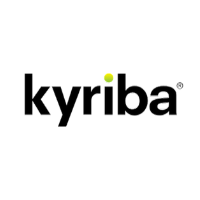But what is Internet of Things?
IoT or Internet of Things has emerged as a network of internet connected devices. These devices range from simple consumer-devices to heavy industrial machines and may include laptops, smartphones, smart gadgets, smart watches, smart and digitalized vehicles, smart bicycles, medical sensors, smart security systems etc. These IoT devices are integrated with high definition technology like sophisticated chips, sensors, or functional software, that makes it possible for them to communicate or interact over the internet smoothly and exchange information with each other. IoT involves first of all sensing, monitoring, and exchange of data, followed by efficient data storing and processing using technologies like cloud computing. Data is thereby transmitted from the device to the IoT network where the information is managed using analytics and then directed back to the IoT equipment. The analytics capabilities of the IoT use these data to convert insights into action, impacting business processes and leading to new ways of working.
In the meantime the Internet of Things has provided many services in the fields of intelligent transportation, smart cities, medical treatment, smart agriculture and many others. These IoT-based solutions allow the automation of daily tasks and enable effective monitoring and control of the connected devices. This may result in improved efficiency and convenience in performing tasks.
Challenges
The advancements in IoT have popularized the development of 5G-enabled-IoT applications. 5G, the next generation of mobile networks, promises remarkable performance improvements and is envisaged to broaden IoT’s scope and fields of applicability. Such 5G IoT applications however pose stringent requirements such as high capacity, assured privacy & security, scalability of heterogeneous applications, ultra-low latency, optimized use of network resources, efficient energy management and low costs.
Since current mobile networks including 5G and also more general IoT systems are based on centralized models they may face big challenges to meet-up the requirements of future 5G-enabled-IoT use cases. With the huge number of devices set to enter IoT networks in the coming years, these centralized arrangements have very restricted scalability, while exposing a large number of vulnerable points that could endanger network security and can become extremely costly and sluggish.
a. Scalability
One of the most crucial difficulties with current 5G IoT networks is that of scalability. IoT relies on centralised cloud-based architecture for their control and management. It would be an urgent task for the centralised cloud servers to scale up their capacity and computing power and handle the massive amounts of data collected by a large network of sensors. With the increasing number of devices and the huge amount of data they are generating, current centralised systems to authenticate, authorise and connect different nodes in a network may become a great bottleneck.
b. Security
Another fundamental problem with current 5G IoT systems that may hinder its large-scale development, is their security architecture. A centralised client-server model managed by a central authority would make it vulnerable to a single point of failure. Many IoT devices have very low security features embedded into them. As a result they may get affected by privacy and security breach, while there is reduced safety for users. That make them an easy target for cyber-criminals to exploit the weak security protection to hack them into launching DDoS attacks.
c. Privacy
Another problem is privacy. The IoT network can process data transactions across multiple devices that are owned and administered by different organisations. This makes it difficult to identify the source of any data leakages in case of a cyberattack. Additionally, the IoT generates a vast amount of data, and with multiple stakeholders involved, the ownership of the data is not always clear. This could potentially undermine the reliability of IoT sensors. Measures to ensure the integrity of IoT devices such that they cannot be altered by external interventions are thus key to securing a safe environment for data recording and transactions.
d. No common standards and protocols
The devices in an IoT network are part of different technology standards with different protocols, making it difficult to build a coherent system. The data generated in the networks have different ownership and are highly noncoherent, hence, hard to trace and audit. Data could either be locked in or may not be inter-operated because of different communication standards and protocols and operating systems.
e. Lack of auditability and control over data sharing/usage
In an IoT network a huge amount of data is generated from devices that are proprietary to several enterprises. It is difficult to manage and audit such data in terms of who owns them, where from are they generated and how can they be processed. Most of the times such data is not under the control of all the intermediate parties involved such as equipment vendors, service providers or users who share a common platform.
Blockchain can be of great help
These issues have become key in IoT systems and if not solved may aggravate when the increase in IoT products will accelerate. Continuing the use of centralized solutions 5G IoT driven applications will not only struggle to meet the demands but will also adversely affect the projected visions of IoT. To solve these issues blockchain or distributed ledger technology (DLT) is increasingly seen as a promising solution to help address these challenges in a unified and decentralised way.
Blockchain, can play an important role in how devices will communicate directly between each. Blockchain, as a distributed database system, can record all information about transactions. This fits perfectly into the basic functions and architecture of the IoT. The distributed nature of blockchain allows the industrial entities and various IoT devices to exchange data to and from their peers, eliminating the centralized operational requirement. Blockchain thereby enables users of 5G IoT networks to interact and transact (store and retrieve data) with ensured data provenance and authenticity, accountability, immutability, and non-repudiation for every user. Blockchain can thereby help alleviate the security, privacy and scalability concerns associated with IoT, by building trust, cost reduction and the acceleration of transactions, without relying on central participants.
How will Blockchain bring these benefits for IoT?
a. Immutability
The distributed ledger in a blockchain system is tamper-proof. Each transaction is recorded, put into a data block, and added to a secure, immutable data chain that cannot be changed. No single organisation has control over the vast amount of data generated by IoT devices. This immutability is regarded as a principal strength of blockchain-based smart contracts, as it removes the need for trust among the involved parties.
b. Improved security
Blockchain’s strong protection against data tampering helps prevent a fraudulent device from disrupting synergy of communication systems by injecting or relaying harmful information. Using blockchain to store IoT data would thus add another layer of security that hackers would need to bypass in order to get access to the network. The blockchain technology thereby holds the potential to securely unlock the business and operational values of 5G networks to support common tasks, such as sensing, processing, storing, and communicating information.
c. Transparency
Blockchain also provides transparency, by allowing anyone who is authorised to access the network to track the transactions that happened in the past. Compared to the ordinary database systems in IoT ecosystems the distributed ledger provides capability to transparent record keeping of the events logged, while the ledger is protected against alterations with the utilization of digital signatures. Through transparency of smart contracts, the trust in 5G IoT networks is decentralized. The deployment of smart contracts in IoT makes the nodes trustworthy and compliant in the specific business ecosystem.
d. Guaranteed integrity
Blockchain as well as blockchain-based smart contracts may also ensure the accountability and integrity of IoT related networks. Smart contracts can be defined as software codes enforcing the regulatory criteria and make them transparently available. These contracts entirely depend on transparency and consistent integrity of all member nodes. The much more robust level of encryption provided by blockchain makes it virtually impossible to overwrite existing data records.
e. Accelerated data change
The performance of the entire IoT ecosystem in terms of higher throughput and latency depends on the accelerated operation of data change in the IoT nodes. As the number of interconnected devices grows, blockchain and smart contracts may provide a viable solution as it can enable fast processing of the growing number of transactions and coordination among the huge number of connected devices. The centralized validation of a particular data can be replaced by decentralized validation with the use of smart contracts deployed on the IoT node itself. This may drastically diminish the data validation time, as well as the chances of manipulation or access.
f. Reduced costs
And as a result of all this, the operational costs of an IoT ecosystem can be minimized when blockchain and smart contracts are utilized. Blockchain and smart contracts can allow IoT companies to reduce their costs by eliminating the processing overheads (deploying expensive high-end computing infrastructure) related to IoT gateways, associated with middlemen and intermediaries.
Applications of Blockchain IoT
Blockchain IoT applications are increasingly used in various sectors like supply chains, transportation and logistics, retail, automotive, healthcare, manufacturing, construction, government, energy and utility. Corporations are thereby focusing on increasing operational efficiency through real-time data management and automation of tasks. Blockchain IoT applications are thereby used for purposes like process automation, supply chain management, smart cities, smart homes, asset tracking and monitoring, data analytics, data sharing and communication, smart cars, decision analytics, home automation, and smart grids.
Supply chain
Blockchain and smart contracts may be of great added value in the 5G IoT smart supply chain. Blockchain IoT applications for tracking purposes are especially used by supply chains to track the location of goods as they are shipped, and ensuring that they stay within specified conditions. The blockchain can store, manage, protect and transfer all this smart information, such as the temperatures, position, arrival times, and status of shipping containers as they move. Sensors give companies end-to-end visibility of their supply chain by providing data on the location and condition of the supplies as they are transported around the globe. Immutable blockchain transactions help ensure that all parties can trust the data and take action to move products quickly and efficiently.
Maintenance
Blockchain IoT asset tracking devices are also used by a lot of businesses for long-range identification of assets and machinery to record activity and output as an alternative to cloud solutions. This is especially important for predictive maintenance modelling. The ability to track components/spare parts that go for instance into an aircraft, automobile, or other products is critical for both safety and regulatory compliance. IoT data stored in shared blockchain ledgers enables all parties to see component provenance throughout a product’s life. From engines to elevators, blockchain provides for a tamper-free ledger of operational data and the resulting maintenance.
Smart city and smart homes
Blockchain IoT solutions are increasingly being used in smart cities to enable the services such as payments, e-Governance, security, and surveillance of the smart cities. Smart cities are the implementation of advanced modern techniques in the urbanization to improve the quality of human life.
Blockchain IoT solutions also find their way in smart homes, that are intended to automate the entire home environment comprising of home appliances and devices. Blockchain can thereby fuel different use cases such as smart home monitoring, remote accessing, energy optimization, surveillance and so on.
Data Analytics
Blockchain IoT can also be applied to data analytics to investigate different types of data. It can be used by businesses for predictive and descriptive analysis to improve customer knowledge, enhance operational efficiency, and create business value. Businesses are increasingly using Blockchain IoT data analytics to determine trends and patterns by analysing big and small data to extract meaningful insights.
Smart healthcare
Blockchain IoT has numerous applications in the healthcare industry. The technology can be used to provide high-quality medical services using smart devices. IoT devices can collect health care data, and these data is stored online. They can be accessed anytime by a physician, Blockchain can as a result enable secure and trusted IoT medical automation systems for real-time monitoring, logging privately medical history, sharing securely medical documents and supporting vital data which can help in making clinical decisions.
Smart farming
The concept of smart farming can revolutionize the agriculture industry. Farmers can use smart blockchain IoT farming applications for optimizing a lot of different activities such as determining the best time to harvest plants, as these devices can detect weather conditions and other environmental data. But also creating fertilizer profiles based on the chemistry of soil, and sensing soil nutrients and moisture levels. Blockchain enabled IoT applications for agriculture purposes can help to boost both the quality and quantity of agriculture production, while minimizing the cost.
Key players in the Blockchain IoT market
A growing number of companies are leveraging blockchain technology to allow any IoT device to securely connect, interact and transact independently of a central authority. Key players include big tech companies like Amazon, Cisco, Huawei, IBM, Intel, Microsoft and SAP as well as big blockchain platforms such as Ethereum, the Linux Foundation and R3. And a growing number of smaller companies using blockchain to make the Internet of Things safer and smarter have entered (or are entering) the market. Some interesting newcomers:
Ambrosius
Ambrosius is a public permissioned blockchain ecosystem with a large number of decentralized node operators securing the network. The Ambrosus blockchain is optimized for interconnectivity with IoT devices, sensors, existing ERP systems, and other enterprise management software. Ambrosius is used for decentralized applications, securing the Internet of Things, physically tracking real-world assets, and integrating blockchain into enterprise software.
Atonomi
Atonomi is an open platform that encourages third-party development. Atonomi provides IoT developers and manufacturers with an embedded solution to secure devices with blockchain-based immutable registration of identity and reputation tracking. While device identity is recorded and validated on an immutable ledger, device reputation is calculated and recorded based on monitored transactions. This enables fluid interactions between validated IoT devices, regardless the manufacturer, across the Atonomi trust environment.
Chain of Things
Chain of Things (CoT) is a consortium of technologists and leading blockchain companies. It investigates the best possible use cases where a combination of blockchain and IoT can offer significant benefits to industrial, environmental, and humanitarian applications. So far, CoT has built Maru, an integrated blockchain and IoT hardware solution to solve issues with identity, security, and interoperability.
IOTA
IOTA is a protocol for fast transaction settlement and data integrity, with a Tangle distributed ledger that eliminates the need for expensive mining (validation of transactions). IOTA is an infrastructure for IoT devices that need to process large amounts of micro data. Features of the Tangle ledger are machine-to-machine communication, fee-less micropayments, and quantum resistant data. IOTA has built a sensor data marketplace and is entering the market for data-driven insights, supported by more than 20 global corporations.
Modum.io
Modum.io combines IoT sensors with blockchain technology, providing data integrity for transactions involving physical products. The modem sensors record environmental conditions, such as temperature, that goods are subject to while in transit. When the goods arrive at the next transit point or end customer, the sensor data is verified against predetermined conditions in a smart contract on the blockchain. The contract validates that the conditions meet all of the requirements and triggers various actions such as notifications to sender and receiver, payment, or release of goods.
Xage Security
Xage is the world’s first blockchain-enabled cybersecurity platform for IoT companies. Their technology can manage billions of devices at once and can even self-diagnose and heal possible breaches. Xage is proximality used by IoT companies in the transportation, energy and manufacturing industries.
Blockchain IoT market 2020–2026
An interesting report was recently launched by Markets & Markets, forecasting the development of the global Blockchain IoT market till 2026. Especially the need for IoT security, simplified processes supported with transparency and immutability, and high adoption of blockchain-based IoT solutions using smart contracts and Artificial Intelligence (AI) are expected to surge demand for the blockchain IoT market globally.
Main highlights
- The global Blockchain IoT market is expected to grow tenfold from USD 258 mio in 2020 to more than USD 2.4 bn by 2026, an average yearly growth of more than 45%.
- Whereas the hardware segment (including IoT sensors and crypto wallets) showed the highest share up till now, due to growing demand and infrastructure for deploying, developing and managing blockchain applications, software and platforms are forecasted to take the lead.
- Data security held by far the largest market share in 2020, due to the crypto mechanisms used of the blockchain. The smart contracts segment is expected to be the fastest growing during the forecast period due to the increasing use of blockchain IoT in the construction industry.
- While the government segment held the largest market share up till now due to the increasing government initiatives and use of blockchain IoT across the many smart city projects, verticals such as supply chain, logistics, automotive, healthcare, manufacturing and construction are also expected to register a high demand for blockchain IoT.
- The growing adoption of blockchain and IoT technologies across the retail sector is also expected to drive market growth during the forecast period. Retailers increasingly use IoT and blockchain technology to track products in stores, prevent product tampering, and increase security across retail stores.
Final remarks
The expected potential of the 5G IoT market today is limited by an extremely fragmented IoT ecosystem. Blockchain technology appears as potentially the most suitable and efficient way to the various 5G IoT challenges. For optimising the value of blockchain the creation of common ecosystems with commonly accepted standards and global protocols is thereby of utmost importance. To achieve that, standardized infrastructures, open application programming interfaces (APIs) and collaborations among stakeholders are urgently needed. That means that many stakeholders, even competitors in the same industry, should collaborate and adopt a shared distributed ledger platform with compatible standards protocols enabling users to access all connected applications. If so that would be a great marriage a trois between blockchain, IoT and 5G.



















